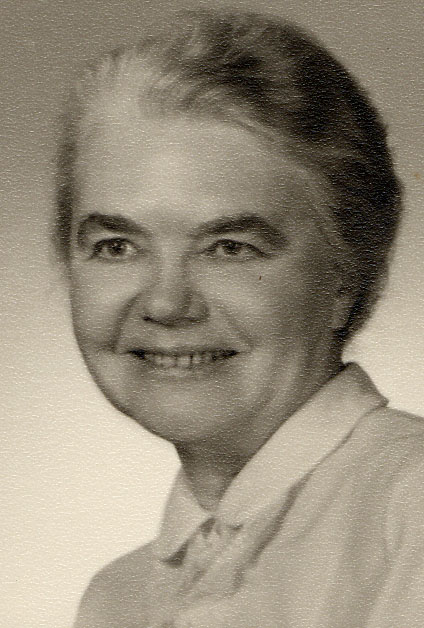|
|
|
|
|
|
|
|
|
Elizabeth
Hoyt, "Challenge from Guatemala: Obstacles to Point Four"
(1950)
|
|
|
| Biography |
|
Elizabeth
was born in Augusta, Maine, and received her A.B. (1913) from Boston
College; M.A. (1924) and Ph.D (1925)from Radcliffe College. She was an
Instructor (1921-1923) at Wellesley College; an Associate Professor
(1925-1928) and Professor (1928-1970) at Iowa State College
(University). As a researcher with the National Industrial
Conference Board (1917-1921), she compiled an index of cost-of-living
factors, the forerunner of today's Consumer Price Index.
|
 A Reminiscence by Dr. Hoyt "In
1928, I took the fall quarter off and made a trip around the world,
crossing the Pacific in a small ship to Japan, visiting Japan and Korea;
and most important, spending a month in Peking at the time of
famine. In the street were peasants seeking food. But there
was no food to be given. Every night carts collected the dead
bodies. I returned by the Trans-Siberian Railroad and ship from
Bremen. I had lost 20 pounds and had tuberculosis, which was soon
cured in Ames. I regard this experience as the most important of
my life." |
|
According to an interview with Dr. Hoyt in a 1980 Iowa Stater interview: The government didn't seem disposed to do anything, so the person for whom I worked said, "We'll publish an index. You start it." And that she did, starting from scratch by studying the boldface listings in major metropolitan telephone directories. Then she would call major manufacturers and ask about prices three months before and how much the items had gone up in cost...We did indexes for clothing, rent, and transportation." Hoyt traveled to various cities and also visited labor unions, supplying the unions with the information she had gathered. From her diary in 1917: "There were about fifteen men and four girls at the Union meeting tonight...
|
Introduction
/ List / ISU
History / Resources
/ Bibliography
Twentieth Century Women of Iowa State
University
Comments: archives@iastate.edu
URL: http://historicexhibits.lib.iastate.edu/20thWomen/revisedSept2005/20thcenturywomen.html